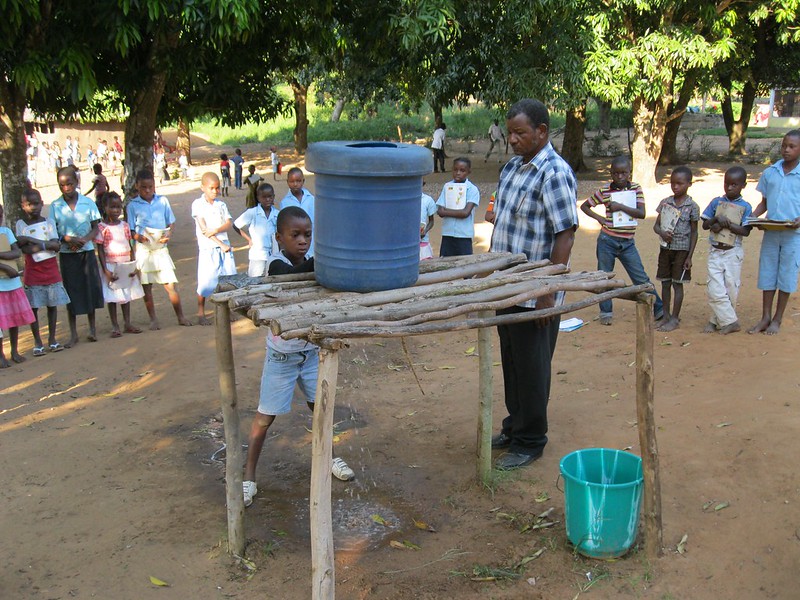SNV’S WASH Program: Improving Water Access
 According to the U.N., fortunately, from 2015 to 2022, the population using safely managed drinking, sanitation and hygiene services water increased from 69% to 73%. However, in 2022, 2.2 billion and 3.5 billion people lacked safely managed drinking and sanitation water, respectively. Worldwide, 140 countries report that 42% of their household do not receive safe water treatment. This has made little progress toward the goal of providing safe water for half of the population in 2030.
According to the U.N., fortunately, from 2015 to 2022, the population using safely managed drinking, sanitation and hygiene services water increased from 69% to 73%. However, in 2022, 2.2 billion and 3.5 billion people lacked safely managed drinking and sanitation water, respectively. Worldwide, 140 countries report that 42% of their household do not receive safe water treatment. This has made little progress toward the goal of providing safe water for half of the population in 2030.
SNV’s WASH Program Brief
SNV Netherlands Development Organization is a global developmental partner that works with government and private sectors in more than 20 African and Asian countries to improve basic living conditions in three criteria: water, agri-food and energy. In 2023, SNV has improved the lives of 6.4 million people through system upgrading, income increment, outcome management and widespread inclusion of basic services.
SNV’s inspiration comes from pursuing SDGs objectives. In response to the water question, SNV has improved the water security for 1.6 million in 18 countries, with 562,000 people gaining access to water for the first time, according to the 2023 SNV Annual Report. SNV frames its work around three determining topics: systems transformation, changing weather patterns and social equity.
Water, Sanitation and Hygiene (WASH) is SNV’s main water developmental program. SNV’s WASH Program defines successful water security as safe water usage, lower water pollution, protection from water hazards and safe water resources, according to the 2023 annual report. To achieve its objective, SNV works with all levels of government facilities and civil societies to provide impactful systemic changes in water infrastructure. At the household level, SNV provides open-access educational programs and publications, promoting thoughtful and safe water management.
SNV’s WASH Program in Mozambique
From 2017 to 2019, SNV’s WASH Program provided sanitation for 68,000 people in Mozambique. In those two years, 14 percentage points more households gained access to an improved toilet. In terms of WASH’s educational effort, 40,000 people have practiced washing their hands after defecation.
However, due to Cyclone Kenneth’s impact, the program sees a 21% decrease in hygienic toilet maintenance. The percentage of the population without access to handwashing facilities went from 62% to 75%. This led to a 14% increase in out-of-usage toilets and, eventually, a 5% increase in open defecation, according to the 2020 brief.
The Most Recent WASH Project
Transforming Access to WASH and Nutrition Services II (T-WASH II) is a project launched by SNV and funded by the U.K. government aid organizations. The project has a budget of £55,821,502 nationwide to date. T-WASH II aims to improve national, provincial and municipal stakeholders’ knowledge and relationships. The project brings positive change from community involvement and women-in-decision-making positions. The lasting outcome is its learning opportunities for stakeholders and local communities.
Looking Ahead
Despite increasing weather challenges, SNV’s WASH Program sees positive change. SNV will continue to adapt its WASH system to align with the changing demands of the local communities and the challenges that changing weather patterns may bring. SNV’s WASH Program is in full force with the necessary funding to do its part in achieving UN SDGs 6.
– Jimmy Nguyen
Jimmy is based in Savannah, Georgia, USA and focuses on Good News and Global Health for The Borgen Project.
Photo: Flickr
